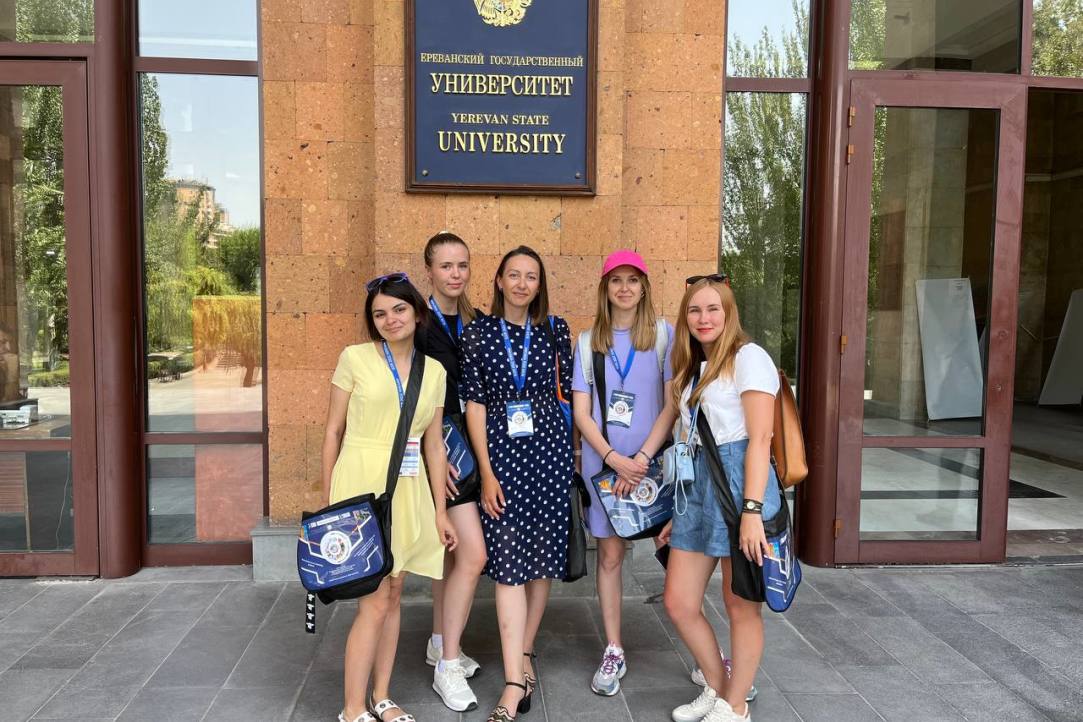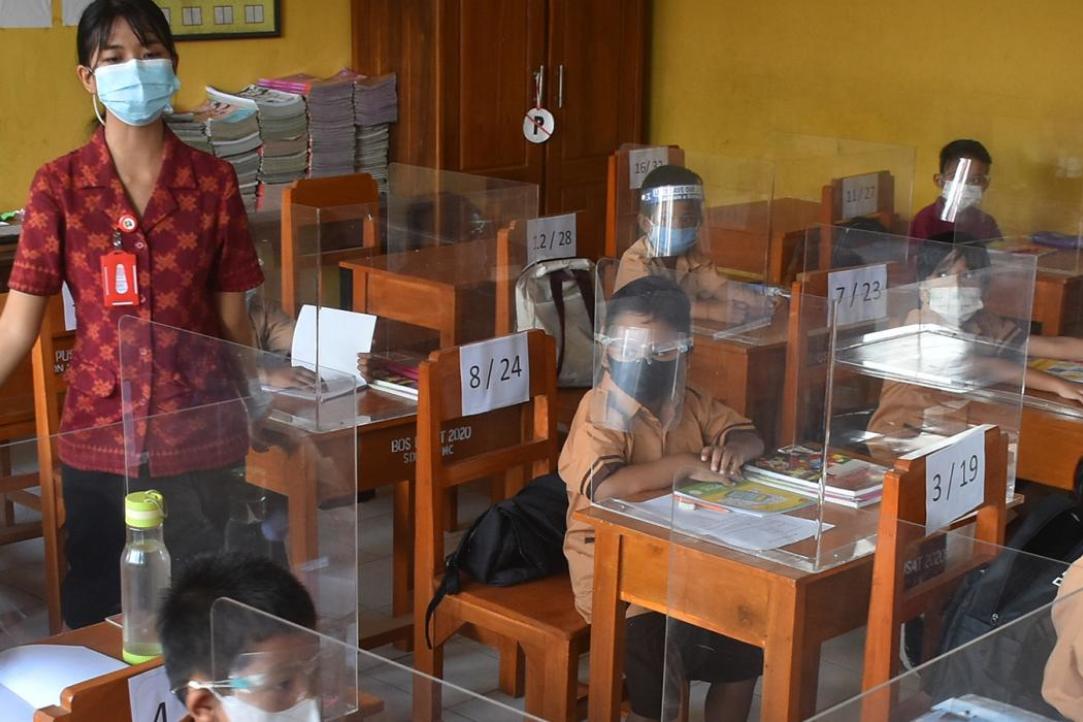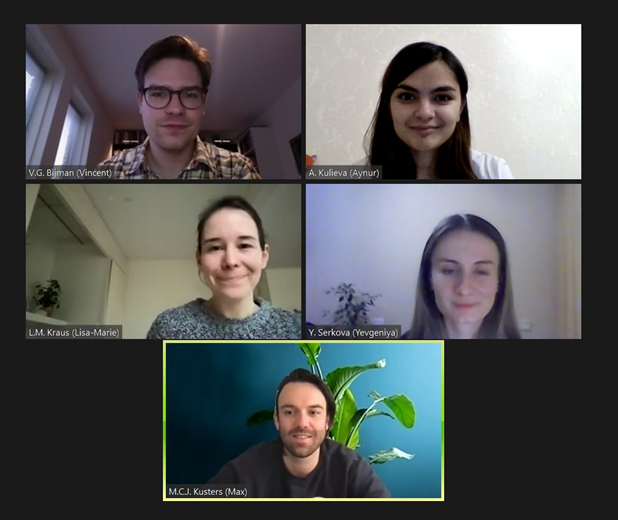EVALUATE
the effectiveness of educational innovations and practices
RESEARCH
student and teacher engagement with educational technologies
STUDY
patterns of EdTech usage through digital traces
ENGAGE
international think tanks and scholars in the evaluation of educational innovations
Topic Map of Our Studies
-
Collaborative learning
How to organize and support joint learning in online environments?
-
Using digital traces for instructional design
Who uses educational technologies in the educational process and how are they used?
-
Engagement tools for online learning
How to improve the educational experience by using automatically collected data on online platforms?
Areas of Expertise
-
WE CONSULT
business companies, schools, and organizations on issues
-
WE EVALUATE
the effectiveness of educational interventions on the learning experience of students on online platforms
-
WE CONDUCT
full-cycle research: goal setting, design, measurement instrument development, data collection and processing
Research Projects
Implementation, Usage and Perception of Digital Technologies in Schools
We analysed the dynamics of digital inequality in Russia during educational reforms aimed to improve the quality and equity of education system, as well as during the COVID-19 pandemic-related transition to distance learning. We studied teacher practices related to the use of digital technologies, and looked into the relationships between these practices and the characteristics of teachers and schools. Finally, we made an assessment of teacher burnout and teachers’ technology-related stress during and after the COVID-19 pandemic.
The Case of New Moscow: A Natural Experiment
We assessed the effect of the ‘Stolichnoye obrazovanie’ (‘Education in the capital) programme on ‘New Moscow’ students’ academic achievement and their access to educational resources. We also performed an analysis of the collateral factors affecting academic achievement and the scope of resources (inputs and infrastructure) available to schools. As a result, we proposed recommendations aimed at reducing educational inequality in Russia.
Factors and Barriers of Digital Technology Use in Schools
In this project, we studied the factors that determine how primary school teachers react to the implementation of digital technologies in schools and how they actually use them. We investigated the relationships between teachers’ behaviours towards the use of digital technologies and their characteristics, and complemented this analysis with a study of the effects of school environments on teachers’ use of such technologies. We also identified the mechanisms and factors behind the teachers’ behaviours.
Commercial Projects
Measuring Student Engagement on Digital Educational Platforms
Together with the educational platform Uchi.ru, we conducted a comprehensive study of approaches to the assessment and measurement of student engagement with digital educational platforms for children. We developed an experimental design (RCT) which can be used to assess the effectiveness of various mechanics for student engagement.
Involvement in Educational Programmes
In this programme, students learn how to develop informed solutions related to educational policy, business, and science based on data and the latest theories. Students gain an understanding of the economics of educational products and management principles.
2 years, Full-time programme (in Russian)
In this course, students are introduced to the practical aspects of EdTech research and the foundations of online educational experiences.
Elective course for HSE students
This programme is aimed at developing assessment instruments that take into account individual personality features.
2 years, Full-time programme
We conduct practical and fundamental research into education based on an interdisciplinary approach.
Our Team
Laboratory Head
International Laboratory of Research and Design In E-learning: Senior Researcher
Research Staff
Self-regulated learning, methodology for analyzing and using digital traces
Using AI and ML-based tools in education research, learning patterns in online environments
Instructional design in online environments, collaborative learning
Instructional design, cognitive load, problem-oriented learning

Computer-supported collaborative learning, providing feedback in online learning
News

-

-

-

Call for Collaboration!
February 01, 2021
-

Studying in spite of Closed Borders
January 21, 2021
Publications
-
Book
Higher Education in Federal Countries: A Comparative Study
Higher Education in Federal Countries: A Comparative Study is a unique study of higher education in nine federal countries—the United States, Canada, Australia, Germany, Mexico, Brazil, Russia, China and India. In this book, leading international scholars discuss the role of federalism and how it shapes higher education in major nation-state actors on the world stage. The editors develop an overarching comparative analysis of the dynamics of central and regional power in higher education, and the national case studies explain how each federal and federal-like higher education system has evolved and how it functions in what are highly varied contexts.
The book makes a major contribution to higher education studies and defines a new field of comparative analysis. It also provides important insights into comparative governance and the study of federalism and federal arrangements, with their particular historical, political, legal and economic dimensions.
L.: Sage, 2018.
-
Article
Does activation of higher-order thinking skills lead to students (dis)satisfaction with their academic experience?
Although satisfaction with academic experience in the context of
higher education has been an area of research for nearly 40 years, it
is still unclear how pedagogical practices in the development of
thinking skills are related to students’ satisfaction. This study aims
to investigate the relationships between students’ satisfaction and
the levels of thinking skills aligned with Bloom’s revised taxonomy
(BRT) taking into account students’ characteristics. Relying on survey
data (14 341 undergraduate students from five US universities),
this study shows that when students are engaged in thinking skills
higher on cognitive hierarchy of BRT, they are more likely to feel
satisfied. Whereas engaging students in low thinking skills activities
does not increase satisfaction with their academic experience. This
study contributes to better understanding of how course design
can be associated with student satisfaction and how instructors can
implement the principles of BRT in their courses.Innovations in Education and Teaching International. 2024. P. 1-14.
-
Book chapter
-
Working paper
The Precision of Symbolic Numerical Representation in Verbal Format Has an Indirect Effect on Math Performance in First Grade
Numerical information can be represented in three formats: two symbolic (visual (digits) and verbal (number words)) and one nonsymbolic (analog) format. Studies have shown that the precision of symbolic numerical representation is associated with math performance. The precision of symbolic representation is mostly discussed as the precision of representation in a visual format, whereas the precision of representation in verbal format and its relation with math performance is less studied. The current study examines the precision of symbolic numerical representation in visual and verbal formats and the relationship between such precision and math performance when controlling for prior math performance, nonsymbolic numerical representation, phonological processing, reading skills and working memory. We used data from 367 Russian first graders (mean age, 7.6 years; 53% girls). To assess the precision of symbolic numerical representation, magnitude comparison tasks with digits and number words were used. It was found that the precision of symbolic representation in verbal format did not have a direct effect on math performance, but has an indirect effect via visual format of symbolic representation, even when controlling for prior math performance and other cognitive abilities.PSYCHOLOGY. WP BRP. Издательский дом НИУ ВШЭ, 2020. No. 120.




